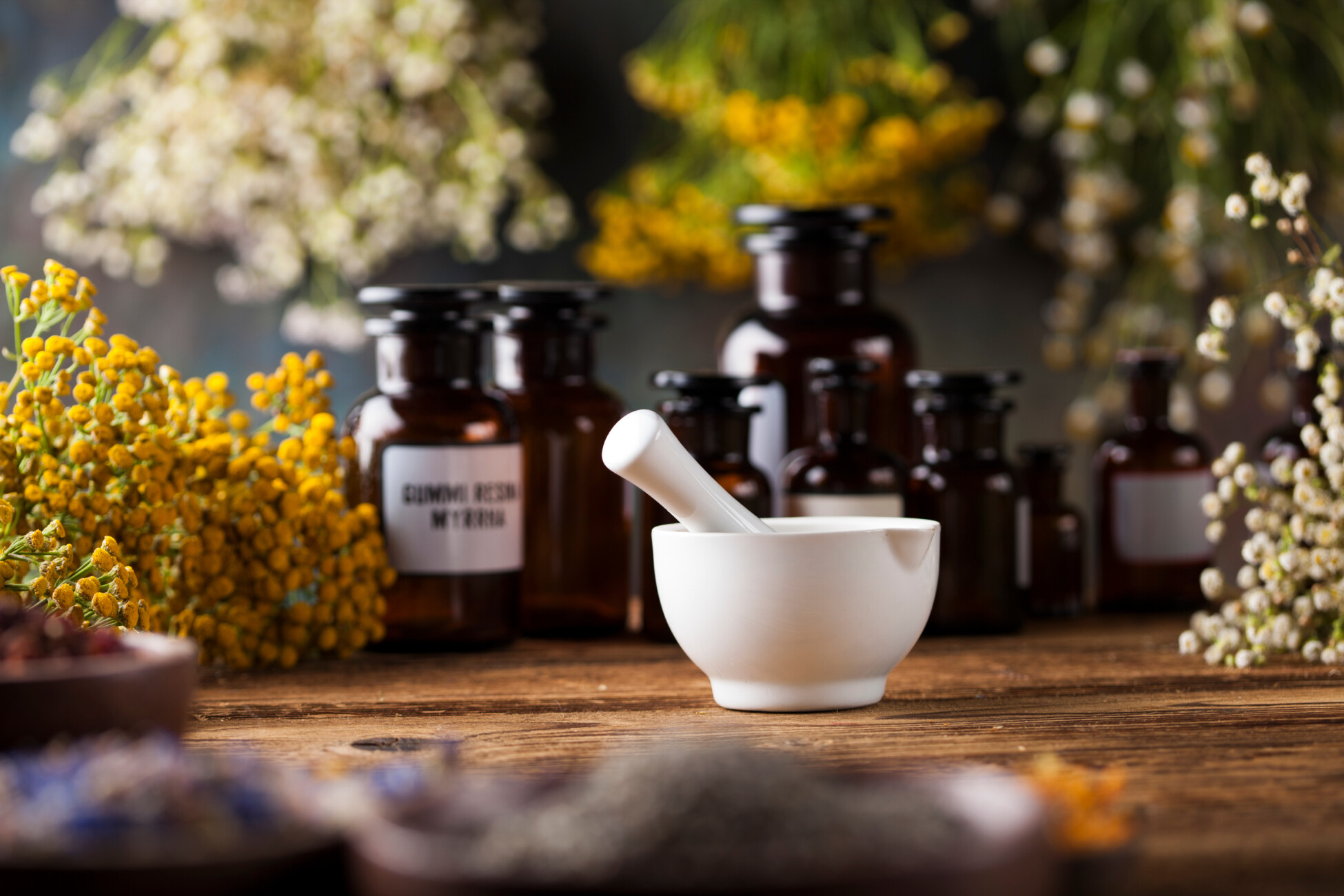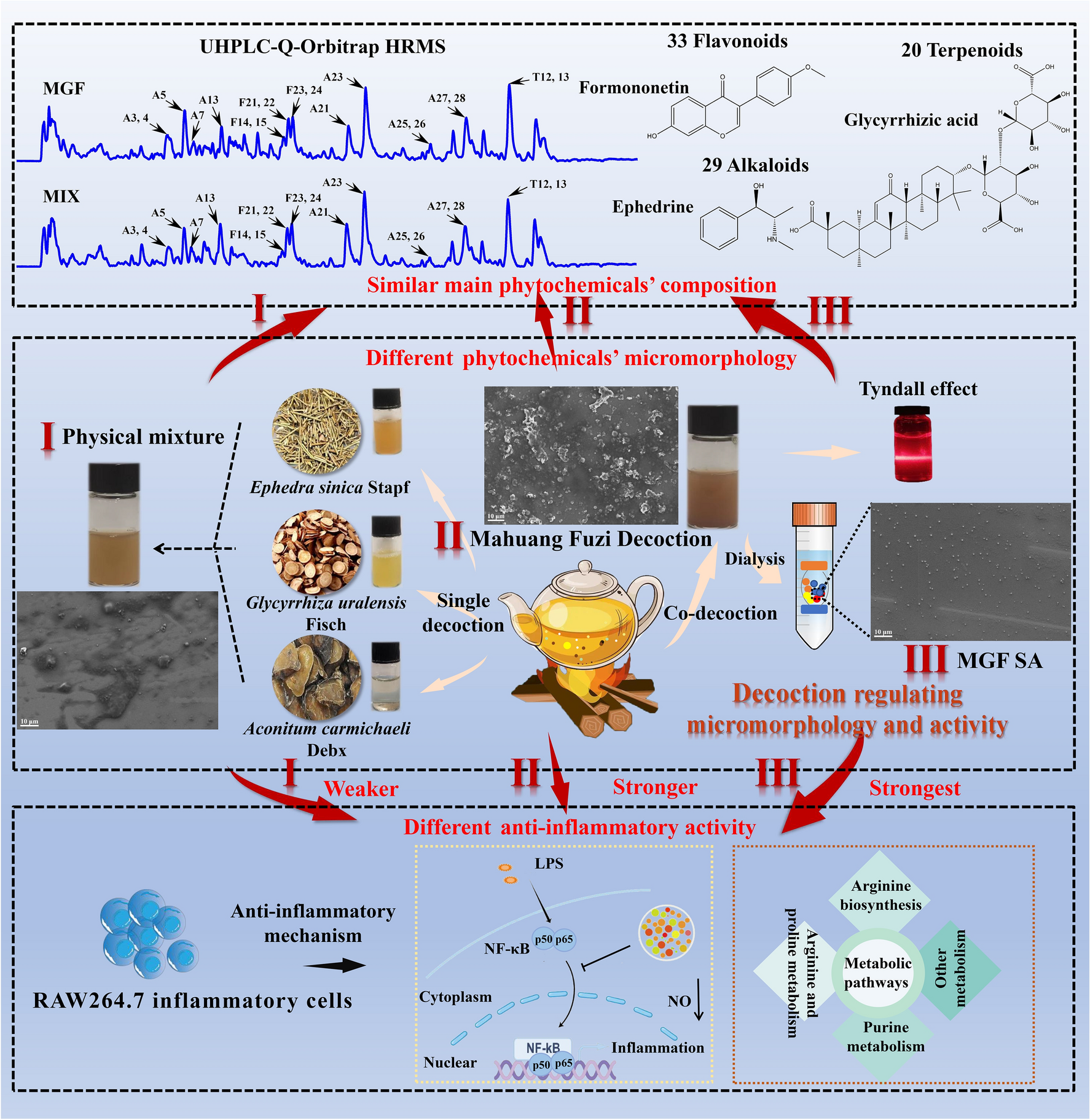
Western Herbs In Chinese Medicine
This group is dedicated to exploring the use of non-Chinese herbs within the Chinese medicine... View more
Are decoctions superior to granules?
-
Are decoctions superior to granules?
Perhaps there needs to be another sub-folder for these kinds of discussions. Happy to move it. Here’s a paper that shows how advanced China is in phytochemistry and pharmacodynamics.
Decoction regulating phytochemicals’ micromorphology changes and anti‑inflammation activity enhancements originated from herb medicine supermolecules
https://cmjournal.biomedcentral.com/articles/10.1186/s13020-023-00864-z
First, we have to define a few things.
A Chinese herb decoction is made by bringing an herb or herbs to a boil in water and then simmering for 15 minutes; straining into another container; then pouring water over the same herbs and repeating the process; and then adding the two resulting liquids together. Whereas a tea or infusion is simply pouring hot water over the herb and letting it steep for a few minutes. Decoctions are usually used for hard plant parts such as roots and stems.
Mahuang Fuzi decoction (MGF) is the stems of ma huang (Ephedra sinica) and the roots of fu zi (Aconitum carmichaeli) in decoction.
Ephedra genus in Plants of the World Online (POWO)
https://powo.science.kew.org/taxon/urn:lsid:ipni.org:names:328160-2
There are 74 species of Ephedra in the world. 17 species in China. Three of them are official in the Pharmacopoeia of China: E. sinica, E. intermedia, and E. equisetina. There are 12 species of Ephedra in North America and none of them contain the alkaloid, ephedrine.
It is illegal in the U.S. (and likely Canada and the U.K.) to sell the herb, ma huang (Ephedra sinica), except to licensed Chinese herb practitioners and maybe naturopathic physicians (I’m not sure about that, actually).
See the list of restricted Chinese herbs sold by MayWay:
The reason for the restriction is due to the illegal street drugs made from the alkaloid, ephedrine. It is not, however, illegal to sell the seed of the Chinese Ephedra species.
Aconitum is a genus of plants in the buttercup family (Ranunculaceae), with the common name, monkshood. It can be poisonous when ingested in a high dose. There are 343 species in the world, of which about 167 species are found in China. Only one Chinese species is used medicinally, Aconitum carmichaeli. Almost all fu zi is processed (pao zhi) by slicing and baking in order to reduce the toxicity, though it is still quite toxic and is used very carefully. When used in a decoction of mixed herbs (always mixed with other herbs), it is boiled first for 30-60 minutes by itself before adding the other herbs. (Aside: my acupuncturist would often add fu zi to my herb mixture for its warming properties.)
The third herb in this study is gan cao (Glycyrrhiza glabra) or licorice root. Not mentioned correctly in the paper, it is referred only as GC (for gan cao).
Additionally, you’ll notice they use MGF for the decoction of Chinese ephedra and monkshood, MGF SA for the supermolecules from the combined decoction, and MIX for decoction of three herbs: Chinese ephedra, monkshood, and licorice. However, these herbs were boiled SEPERATELY and then mixed together (see Sample preparation section). PHEW!
Supramolecular chemistry focuses on “a discrete number of molecules wherein weak chemical forces like electrostatic charge, hydrogen bonding, and Van Der Waals forces operate instead of strong covalent forces.”
https://www.wikiwand.com/en/articles/Supramolecular_chemistry
And in this paper, “Supramolecular chemistry…typically refers to the combine (bad English here) of two or more molecules through intermolecular interactions, resulting in intricate and well-organized aggregates.”
This is a study of supramolecular aggregates in herb medicine decoction. This is why China is so far ahead of the U.S. in phytopharmacology and phytochemistry.
Synergy is the interaction of two or more substances to produce a combined effect greater than the sum of their separate effects.
Another important thing to know is that many or most Chinese herbalists in the U.S. give granules to their patients instead of dry herb mixes to make into decoctions. Why? Because Americans won’t take the time to make a decoction. They want fast and easy. Granules dissolve easily into hot or cold beverages. Granules are made by decocting whole, raw herbs in water and then evaporating the water to create a dry powder. These granules can be a single herb or a mixture of herbs.
The conclusions section explains the results of this study. They basically say that the decoction of the three herbs are more anti-inflammatory than a granule mixture of these herbs. Wow.
cmjournal.biomedcentral.com
Background Mahuang Fuzi decoction (MGF) is composed of three herb medicines that has been clinically used to treat inflammatory diseases for a long history. At present, more and more active phytochemicals’ aggregations have been found during the thermodynamic process of … Continue reading
Log in to reply.

